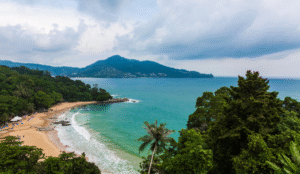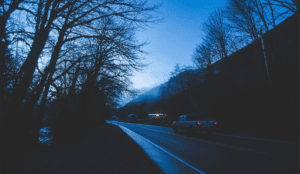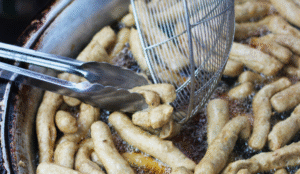Complete 2025 Guide to MM2H Malaysia: Requirements & Costs: Why Malaysia is a Top Choice for Long-Term Living
Warm weather year-round, modern infrastructure, and a welcoming multicultural society have made Malaysia one of Asia’s most attractive destinations for retirees and global citizens. The MM2H Malaysia program—short for “Malaysia My Second Home”—invites foreign nationals to settle in the country for the long term while enjoying generous privileges such as multiple-entry visas, property ownership rights, and even tax incentives.
If you have ever dreamed of sipping morning kopi in a tropical garden, exploring lush rainforests on weekends, or living affordably in a vibrant city like Kuala Lumpur, this guide will walk you through everything you need to know. We cover the mm2h requirements 2025, a detailed breakdown of costs, and a step-by-step MM2H Malaysia application checklist so you can plan your move with confidence. Whether you’re seeking a Malaysia retirement visa for a peaceful life after work or a family-friendly relocation option, the following information will help you start your journey.
Frequently Asked Questions (FAQ)
1. Is MM2H Malaysia open for applications?
Yes. The MM2H Malaysia programme is currently accepting new applications, but criteria can change. Always check the Ministry of Tourism, Arts and Culture (MOTAC) website for the latest updates.
2. What are the property requirements for MM2H Malaysia 2025?
Property purchase minimums vary by state, typically ranging from RM1 million and above. Verify the exact threshold with the state authority where you plan to buy.
3. How long is the processing time for MM2H?
Processing generally takes three to six months after submission, depending on document completeness and background checks.
4. What are the requirements for MM2H Malaysia?
Applicants need proof of liquid assets, a Malaysian fixed deposit, a police clearance certificate, valid medical insurance, and a medical check after conditional approval.
5. Can I apply MM2H Malaysia by myself?
Yes, you can apply independently through the official MOTAC portal. Some applicants choose licensed agents for convenience, but it’s optional.
6. What documents should be on my official MM2H Malaysia application checklist?
Key documents include: valid passports, financial statements, marriage and birth certificates (if applicable), police clearance, letter of intent, medical report, and proof of insurance.
Understanding the Malaysia My Second Home Programme
MM2H Malaysia my second home programme is a long-term residency scheme backed by the Malaysian Ministry of Tourism, Arts and Culture. Launched in 2002, it was designed to attract foreign investors, retirees, and professionals who can contribute positively to the economy. Successful applicants receive a renewable ten-year multiple-entry visa, allowing them to live anywhere in the country without needing a local sponsor.
Unlike some residency schemes that restrict employment or property ownership, MM2H offers flexibility. Participants can purchase residential property above a set price threshold, bring spouses and children, and even employ domestic helpers. This combination of freedom and stability has made the program a favorite among retirees, digital nomads, and entrepreneurs alike.
Benefits of Choosing MM2H
Why choose MM2H Malaysia instead of other long-term visa options in Asia? Here are key advantages:
- Long Validity: Ten-year renewable visa gives peace of mind.
- Family Inclusion: Spouses and dependents under 21 can be included under one application.
- Property Ownership: Ability to buy residential property within each state’s minimum price guidelines.
- Tax Incentives: Malaysia does not tax income earned overseas.
- Affordable Lifestyle: Lower cost of living compared to many Western countries and regional neighbors.
These perks create a strong value proposition for anyone seeking a Malaysia retirement visa or a secondary residence in Asia.
MM2H Malaysia Requirements 2025: Updated Criteria You Must Meet
MM2H Malaysia rules have undergone meaningful revisions in recent years as the government retooled the programmed to better align with national economic goals. Because of those changes, it’s important to treat the MM2H framework as a living policy — one that can include new tiers, fixed-deposit banding, participation fees, and state-level purchase thresholds. The Ministry of Tourism, Arts and Culture (MOTAC) now publishes official terms and an application checklist; always confirms the current PDF or web page before submitting documents.
Financial structure and tiers
Recent official updates describe a clearer structure for required financial commitment after approval. While earlier versions of MM2H Malaysia focused on liquid assets and monthly offshore income, the programmer’s latest public materials emphasize placement of a fixed deposit in a Malaysian bank account and may offer tiered arrangements (different deposit amounts or “tiers” for special economic zones). The fixed deposit functions as a proof of financial commitment and allows partial withdrawals for pre-approved purposes (such as buying property, paying for schooling, or healthcare) after a specified minimum time in Malaysia. Always request the exact FD amounts from the official MOTAC guidance for your category.
Liquid assets and offshore income
- Applicants must show liquid assets (savings, cash, or investments) at a minimum amount stipulated by MOTAC.
- Some applicants must also show a stable offshore income — for example from pensions, investments, or overseas employment — at a level that makes it credible you can support living costs in Malaysia.
- Note: recent updates may adjust these thresholds depending on your country of origin and currency strength.
Fixed deposit and permitted withdrawals
Once conditional approval is granted, you are required to place the fixed deposit in a Malaysian bank. Part of this fixed deposit may be withdrawn after one year or more, but only for certain pre-approved uses such as purchasing residential property, funding undergraduate tuition for dependents in Malaysia, or paying for medical expenses. Always check the schedule of permitted withdrawals and the required documentation.
Background checks, medically fit, and insurance
The MM2H Malaysia application continues to require thorough background and health screening: a Certificate of Good Conduct (or police clearance) issued by the applicant’s home country, plus a medical report and proof of medical insurance for all participants. Documents must often be authenticated, translated (if not originally in English or Malay), and sometimes notarised or apostilled. Medical insurance must meet minimum coverage as stipulated in official MOTAC criteria.
Age, dependents and participation rules
- There is an age minimum for principal applicants; applicants must meet it (commonly around age 35).
- Spouses and dependent children (often under 21 and unmarried, though some documents may allow older dependents under study) can usually be included.
- Some dependents may need proof of student status or non-employment before a certain age. Marriage and birth certificates must be certified.
Property purchase threshold and state rules
- Each Malaysian state defines the minimum price foreign nationals must pay if they wish to purchase residential property. These thresholds vary widely.
- If you plan to buy property under the MM2H pass, check both the state’s property minimum and any additional federal or local taxes/fees.
- Even if property purchase is optional, many MM2H residents eventually do so and benefit from favourable rules around ownership and permitted withdrawals from/or use of deposits.
Employment, business, and the MM2H pass
- Under the MM2H Malaysia visa, full-time employment is generally not permitted unless separately approved.
- You may establish a business, invest, or work part-time under certain conditions, but you will need to follow the relevant employment or business license rules.
- Applying for work rights or expanding business operations should be planned early because local regulatory approvals may take time.
Estimating the Total Costs: MM2H Malaysia
Budgeting accurately helps avoid surprises. While figures can vary by lifestyle and exchange rates, here’s an overview of typical expenses:
Item | Estimated Amount (RM) |
Government Processing Fee | 5,000 – 10,000 |
Visa Pass (10 Years) | 500 per year |
Medical Insurance | 1,500 – 3,000 annually |
Fixed Deposit (Refundable) | 1,000,000 |
Agent/Consultant Fees (Optional) | 10,000 – 15,000 |
Remember, the fixed deposit remains yours and can be partially withdrawn for specific approved purposes after the first year.
Step-by-Step MM2H Malaysia Application Checklist
A clear roadmap makes the process manageable. Below is a simplified MM2H Malaysia application checklist, with richer detail and practical tips to help you avoid delays and rejections.
- Pre-application review and eligibility check
- Download and read MOTAC’s current “Terms & Regulations” and application checklist. Confirm the fixed deposit amount, offshore income level, and minimum age relevant to your country.
- If you will purchase property in Malaysia, check the state’s minimum value for foreign residential property (each state has different thresholds).
- If you plan to bring family members, verify age limits and whether “dependent” status requires student enrollment or proof of unemployment.
- Prepare identity and civil documents
- Passports (valid, with copies of main page & all visa stamps).
- Passport-size photographs per the required dimensions.
- Marriage certificate, birth certificates for children. Authenticate or legalize these documents if needed.
- If dependents over a certain age, obtain proof of schooling or current student status; if spouse has previous marriages, provide divorce or death certificates.
- Obtain background checks & clearances
After that:
- Acquire Certificate of Good Conduct or Police Clearance from all relevant countries you’ve lived in for a minimum period (often more than six months).
- Ensure these documents are apostilled, legalized, or consularized as required by Malaysia and translated if not in English or Malay.
- Collect financial and income proof
- Bank statements showing liquid assets (savings/investments) as per requirement.
- Proof of recurring offshore income: pensions, dividends, or salary slips. Ensure bank statement sources are clearly shown.
- If applicable, proof of other assets or investments (real estate, stocks, business ownership) that support your financial stability.
- Write a personal statement or intent letter
- Explain your purpose for choosing Malaysia, plans while residing under MM2H Malaysia (retirement, investment, studying, travel), and how you will fund your stay.
- Also describe any dependents’ plans (schooling, work if applicable).
- Medical exam & insurance
- Schedule the required medical examination at a Malaysian registered clinic or hospital after conditional approval.
- Buy medical insurance that meets or exceeds MO TAC’s required minimums. Include dependents. Check for coverage of serious illnesses or hospitalisation.
- Submit application
- Lodge the full application with all documentation, through either MOTAC’s official online portal or via a licensed MM2H Malaysia agent. Keep copies of everything.
- Pay any application or participation fees if required (some tiers may charge a joining fee or annual participation fee).
- Conditional approval & fixed deposit placement
- Once conditional approval is issued, open a Malaysian bank account if you don’t have one.
- Deposit the required fixed deposit within the timeframe stipulated. Save receipts and official bank confirmations.
- Final visa endorsement
- Submit all proof (fixed deposit, insurance, medical results, etc.) to the Immigration Department. Provide any originals if requested.
- Immigration will issue the MM2H Malaysia pass (10-year multiple-entry visa) once everything checks out.
- Post-approval compliance and renewals
- Maintain the fixed deposit per programmed rules—if you withdraw, ensure it’s for approved purposes and properly documented.
- Keep medical insurance in force.
- Stay updated with any policy changes. At renewal, be ready with updated financial proof, insurance, and possibly updated medical reports.
Practical tips to reduce delays and improve success:
- Plan ahead for document legalization; apostilles or embassy verifications often take weeks.
- Use a licensed agent if you’re uncertain about state property thresholds or family applications.
- Be meticulous with translations and certifications — mistakes here are a common cause of rejection or delay.
- Keep financial documentation well-organized; banks sometimes label or format things differently.
Living in Malaysia: What to Expect
Moving under MM2H Malaysia is about more than a visa — it’s adopting a new lifestyle. Here are in-depth insights into what daily life, costs, services, and cultural integration actually look like.
Cost of living and budgeting
The cost of daily life in Malaysia depends heavily on location and lifestyle. Major cities like Kuala Lumpur are the most expensive, especially in terms of rent in preferred suburbs. By contrast, Penang, Ipoh, Melaka, or smaller towns in Sabah or Sarawak offer lower housing costs.
- For a comfortable two-person household (mid-range apartment, utilities, groceries, eating out a few times per week, local transport), budgeting RM7,000–RM11,000/month is realistic in metro KL. In smaller cities, similar standard living can be achieved for RM5,000–RM8,000/month.
- One-time relocation costs (airfare, shipping personal goods, visa fees, deposits for housing) should be budgeted separately.
Lifestyle choices can shift cost dramatically—if you prefer western-style groceries, frequent fine dining, imported cars, or luxury housing, your expenses may be 30–50% higher.
Housing & real estate
- Foreigners under MM2H Malaysia may purchase residential property, provided it meets state minimum purchase price. These minimums vary widely by state and by property type.
- Rental housing is widely available. In Kuala Lumpur, prime locations or expat-friendly suburbs tend to cost more; further out or in smaller cities you can find quality rentals for far less.
- Utilities (electricity, water, internet) are generally affordable; air conditioning use raises electricity bills significantly, particularly during hot seasons.
Healthcare & insurance
- Malaysia’s private hospitals are well-equipped, highly rated, and relatively affordable compared to Western countries. Kuala Lumpur, Penang, Johor Bahru have good private medical infrastructure.
- Standard medical insurance under MM2H Malaysia must meet the minimum coverage defined by MOTAC or Immigration; many expats opt for plans with broader coverage.
- Wait times at public hospitals can be longer. For major procedures or specialist consultations, many prefer private facilities.
Education & schooling
- International schools are plentiful in Kuala Lumpur, offering British, American, or IB curricula. Fees for international schooling can be high; early placement is recommended.
- In other states, school options can be more limited; verify whether schools accept non-Malaysian students and what fees are.
- Public schools are lower cost, but curriculum differences, Malay language requirements, and class sizes may not align with every family’s expectation.
Integration, culture & daily life
- English is widely spoken, especially in business, tourism, and among educated populations. However, Bahasa Malaysia is the national language; learning basic phrases helps with everyday living and demonstrates respect.
- Malaysia is culturally diverse: Malay, Chinese, Indian, indigenous communities; each contributes festivals, cuisine, religious variety festivals like Hari Raya, Chinese New Year, Deepavali, Gawai, Kaamatan are celebrated broadly.
- Food is a highlight: street food, hawker centres, fusion restaurants; cuisine is varied and affordable.
Transport, connectivity, and mobility
- Urban transport: Kuala Lumpur has MRT, LRT, monorail; public transport is improving. Traffic congestion is real in city centers.
- Outside cities: owning or renting a car is more common. Foreign driving licenses may be used in some states temporarily; long-term residents often convert to a Malaysian driving license.
- Internet & mobile coverage: High in urban areas; broadband and fibre options exist; in remote or rural areas, internet speeds and reliability drop.
Safety, legal, and everyday considerations
- Malaysia is relatively safe, especially in urban and suburban areas. As with anywhere, usual caution is advised. Minor crimes like pickpocketing may occur.
- Legal norms: respect local customs (dress modestly in some contexts, understand religious practices). Public behavior is regulated: drug laws are strict; defamation laws are serious.
- Cost of everyday necessities is low—for groceries, local food, utilities—however imported goods or luxury items cost more due to import duties and transport.
Popular Locations for MM2H Residents
- Kuala Lumpur & Selangor – The capital region provides world-class amenities, international schools, and easy flight connections.
- Penang – Famous for heritage architecture, food scene, and an established expat community.
- Johor Bahru – Convenient for those who want proximity to Singapore.
- Sabah & Sarawak – Ideal for nature lovers, offering rainforest retreats and a slower pace of life.
Conclusion: Your Gateway to a Rewarding Lifestyle
The MM2H Malaysia program is more than a visa; it’s an invitation to experience a rich cultural tapestry, stable economy, and enviable lifestyle. By understanding the MM2H Malaysia requirements 2025, preparing your finances, and following a thorough mm2h application checklist, you can transition smoothly into a life of tropical comfort and exciting possibilities.
Whether you’re planning for retirement or simply seeking a fresh start in Southeast Asia, the Malaysia my second home programme provides a path to make that dream a reality. Take the first step today—download the latest guidelines from MOTAC, gather your documents, consult trusted advisers if needed, and start envisioning your life under this enriching scheme.
Malaysian Communities and Lifestyles: From Rural Traditions to Modern Living
To truly know Malaysia, you must know its people. From the stilt houses of Penang’s clan jetties to the vibrant rhythm of Kuala Lumpur’s street performers, explore the unique communities and lifestyles that define the soul of the nation:
Traditional & Rural Roots
- Kampong:Malaysia’s Astounding Culture
- Village Life Activities: Kampung Hosts and Their Tourism Stories
- Why Rural Development Matters: Live and Community
- Penang’s Clan Jetties: Living on the Water
Modern Voices & Urban Life
- Street Busker Kuala Lumpur: The Hidden Art of Malaysia’s Music Scene
- Complete 2025 Guide to MM2H Malaysia: Requirements & Costs
- Malaysia’s Sports Heroes and Their Impact
- Malaysia Tourism: Awe-Inspiring Entreprenuers



